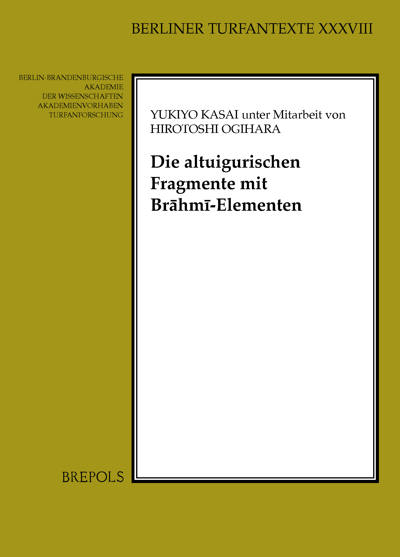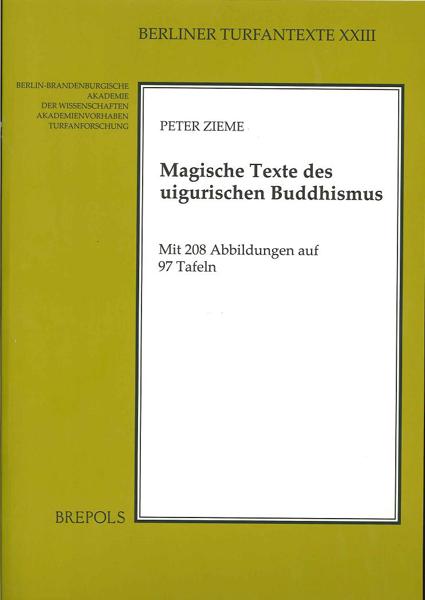
Die altuigurischen Fragmente mit Brāhmī-Elementen
Yukiyo Kasai, Hirotoshi Ogihara (eds)
- Pages: 445 p.
- Size:210 x 297 mm
- Illustrations:38 col.
- Language(s):Uygur, Chinese
- Publication Year:2017
- € 80,00 EXCL. VAT RETAIL PRICE
- ISBN: 978-2-503-57441-7
- Paperback
- Out of Print
This is the first edition of the Old Uyghur Buddhist texts with elements in Brāhmī script.
Yukiyo Kasai is a specialist in Turkology and the History of Central Asia. Her research focuses on the edition and interpretation of Old Uyghur Buddhist texts.
This is a comprehensive edition of the Old Uyghur texts from the Berlin Turfan Collection that contain Brāhmī elements. Amongst the Old Uyghur texts preserved in the Berlin Turfan Collection, a number are written mainly in Uyghur script but combined with elements written in Brāhmī script. Although these texts are of various content, they have in common that they all belong to Buddhist literature. The Brāhmī script was used for several purposes, but mostly to render Buddhist Sanskrit terminology or short Sanskrit sentences. Most of the Old Uyghur texts with Brāhmī elements were written on the verso side of Chinese Buddhist scrolls. Through the identification of the Chinese text on the recto side many smaller fragments could be joined and put together to larger leaves. The dating of the manuscripts is a general problem in the research on Old Uyghur texts. In the texts with Brāhmī elements mostly the cursive variant of the Uyghur script was used, which means that most of them must have been written in the Mongolian period (13th-14th c.). The Old Uyghur texts with Brāhmī elements have never before been investigated systematically. Giving an overview of the contents of the texts, this book is the first complete edition of the Old Uyghur texts with Brāhmī elements.



